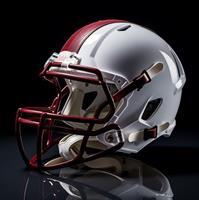A mouthguard, often used in contact sports to protect teeth and reduce the risk of oral injuries, can be classified into different types based on its design, fit, and the way it's secured in the mouth.
Among these, the terms "strapped" and "strapless" refer to whether the mouthguard has a strap attached to it.
Here's a breakdown of the differences between strapped and strapless mouthguards:
Strapped Mouthguards
-
Strap Attachment: These mouthguards come with a strap that can be attached to helmets, particularly those used in sports like football. This strap ensures that the mouthguard stays in place when not in use and reduces the chance of it getting lost or falling onto the ground.
-
Convenience: Especially useful for sports where helmets are required and players might frequently remove their mouthguard during breaks. The strap ensures the mouthguard remains hanging from the helmet.
-
Limitation: The primary limitation is that it can only be used effectively in sports where helmets are a standard piece of equipment.
Strapless Mouthguards
-
No Strap: As the name suggests, these don't have any straps attached. They rely solely on their fit to stay in the mouth.
-
Versatility: They can be used in any sport, whether or not a helmet is required. This makes them suitable for sports like basketball, martial arts, or soccer.
-
Convenience: While they're easy to use and wear, there's a risk of misplacing them since they don’t attach to anything when not in use.
-
Preference: Some athletes find strapless mouthguards more comfortable because they don't have an additional strap to worry about.
Choosing between a strapped or strapless mouthguard often comes down to the specific requirements of the sport and the athlete's personal preference. If you are playing a sport with a helmet that has a cage, it may be better to wear a strapped mouthpiece so that you can take it out without risking it falling on the ground.
Regardless of type, it's essential that a mouthguard fits properly to ensure maximum protection and comfort. In many cases, athletes opt for custom-fitted mouthguards made by dental professionals to ensure the best possible fit.



